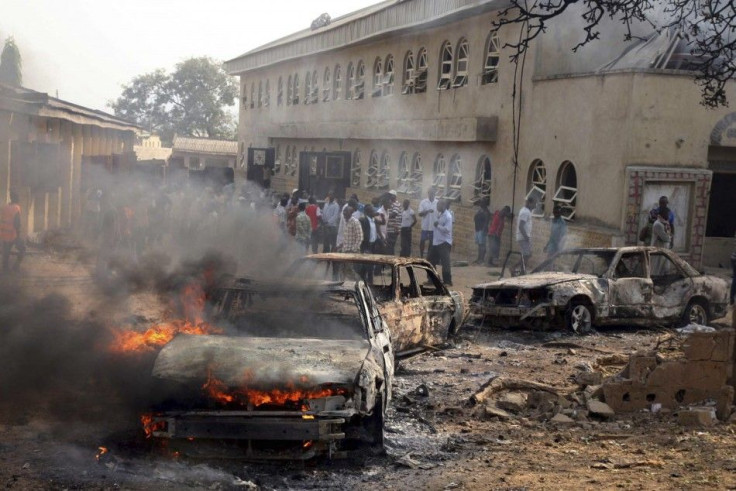Boko Haram: 'We Did Not Murder Civilians'

The leader of Nigerian militant group Boko Haram has denied killing civilians during a series of coordinated bomb attacks in Kano last week.
Abubakar Shekau said in his most recent video message that Boko Haram did bomb police stations in the northern city, but that any civilian deaths were caused by Nigerian security forces.
At least 185 people were killed during the Kano attack last Friday. Insurgents used homemade bombs, guns and at least two suicide vehicle-borne improvised explosive devices to attack a number of police stations in the city. It was the single deadliest Boko Haram attack since the group waged its bloody and seemingly endless campaign against the government of President Goodluck Jonathan.
Although Shekau blamed Jonathan's Joint Security Force for killing civilians last Friday, he hasn't condemned the killing of civilians at all. Police stations are historically the main target of Boko Haram's wrath, but in its current wave of violence the group has attacked bars, banks, government offices, markets, the United Nations building in Abuja, and most recently, a number of churches. The group claimed responsibility for the Christmas Day church bombings that killed 50 people around the capital, and has been blamed for attacks on two vacant churches in Bauchi on Sunday.
Additionally, Shekau said in his video that Boko Haram would begin bombing secondary schools and universities if the recent attacks on Islamic schools didn't stop.
Nigeria's Growing Insurgency
Boko Haram, or Western Education is Sinful in the Hausa language, is a Muslim rebel group that wants to make Nigeria into an Islamic state. Based in the predominantly Muslim north -- where 12 states are already under sharia law -- Boko Haram has spent the past year and a half terrorizing the nation.
The group killed more than 500 people last year, and, with its tactics evolving, it has already killed another 250 in the first three weeks of this year.
Jonathan's government has been trying to stop the rebel group by force, using his Joint Task Force (JTF) -- a combination of the military and the police -- to crush Boko Haram. In accordance with Shekau's statements, the JTF has in the past been blamed for killing civilians. Bystanders sometimes get caught in the crossfire during public clashes; for example, 10 people died during a shoot-out between security forces and militants at a bank in Tafawa Balewa on Sunday.
Additionally, in one of its first missions the JTF reportedly conducted house-to-house investigations in Borno, where they interrogated civilians by gunpoint and allegedly executed suspects on the spot.
The JTF did arrest around 200 suspects related to the Kano bombing. The government said that most of the detainees were mercenaries hired from Chad.
Many arrests have been made since the attacks, an anonymous police source told the AFP. We have arrested around 200 attackers and 80 percent of them are Chadians. They came in as mercenaries.
However, the main bombing suspect escaped from prison last week, prompting Jonathan to fire national police chief Hafiz Ringim on Wednesday.
For the first time, Jonathan is also saying now that he is willing to negotiate with the rebels, noting that military confrontation alone will not eliminate terror attacks.
If they clearly identify themselves now and say this is the reason why we are resisting, this is the reason why we are confronting government or this is the reason why we destroy some innocent people and their properties ... then there will be a basis for dialogue, Jonathan said in an interview with Reuters.
We will dialogue, let us know your problems and we will solve your problem but if they don't identify themselves, who will you dialogue with?
© Copyright IBTimes 2024. All rights reserved.




















